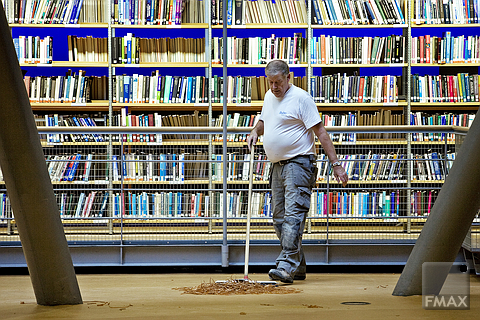De TU-bibliotheek moet in de loop van het jaar in een soort huiskamer en studieplek veranderen. In dit zogeheten ‘Library Learning Centre’ moeten studenten en medewerkers straks in loungebanken informeel kunnen afspreken met een hapje en een drankje.
Natuurlijk past daar ook een mooie nieuw glanzende vloer bij.
On March 23 Google starts accepting applications for its Summer of Code program, which every year from May to August gives students around the world the chance to do work related to their academic pursuits under the mentoring of experienced open source software developers. Selected students receive a 3,000 euro stipend to work virtually from
anywhere as members of an open source community collaborating on proposed projects. Since its inception, the program has brought together more than 2,500 students and mentors from 100 countries, and each year the program’s technologies and research becomes more fascinating and multi-disciplinary. Participating in Google’s Summer of Code is a great way for students to get a jump on their thesis, gain exposure to global software development and become part of the worldwide open source phenomenon. Google will be accepting applications from March 23 to April 3 from students looking to develop code for participating mentoring organisations, ranging from small open source projects to Software Foundations like Apache, Python and Eclipse, to Supercomputer centers, research institutes and international universities. Last year I was one of 20 international and Dutch students in the Netherlands who participated in Summer of Code. To get selected, the first step is to thoroughly read all the program’s info-pages. Then look for a project that interests you and get to know the project’s mentoring organisation through discussions with developers on the project’s mailing list, IRC channel and project wiki. Also, brush up on your project management skills and create a concise, intriguing and irresistible proposal that also shows your ability to visualise the project in advance. But don’t worry, there is plenty of examples and advice out there. Spending enough time learning about a project should enable you to write a superior proposal. Once proposals are submitted, they’re evaluated by the mentoring organisations, and then the selected proposals are posted on GsoC’s webpage.
For more info: code.google.com/soc or email me, Oscar Castañeda, with any questions: o.v.castanedavillagran @ student.tudelft.nl



Comments are closed.